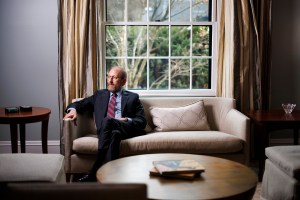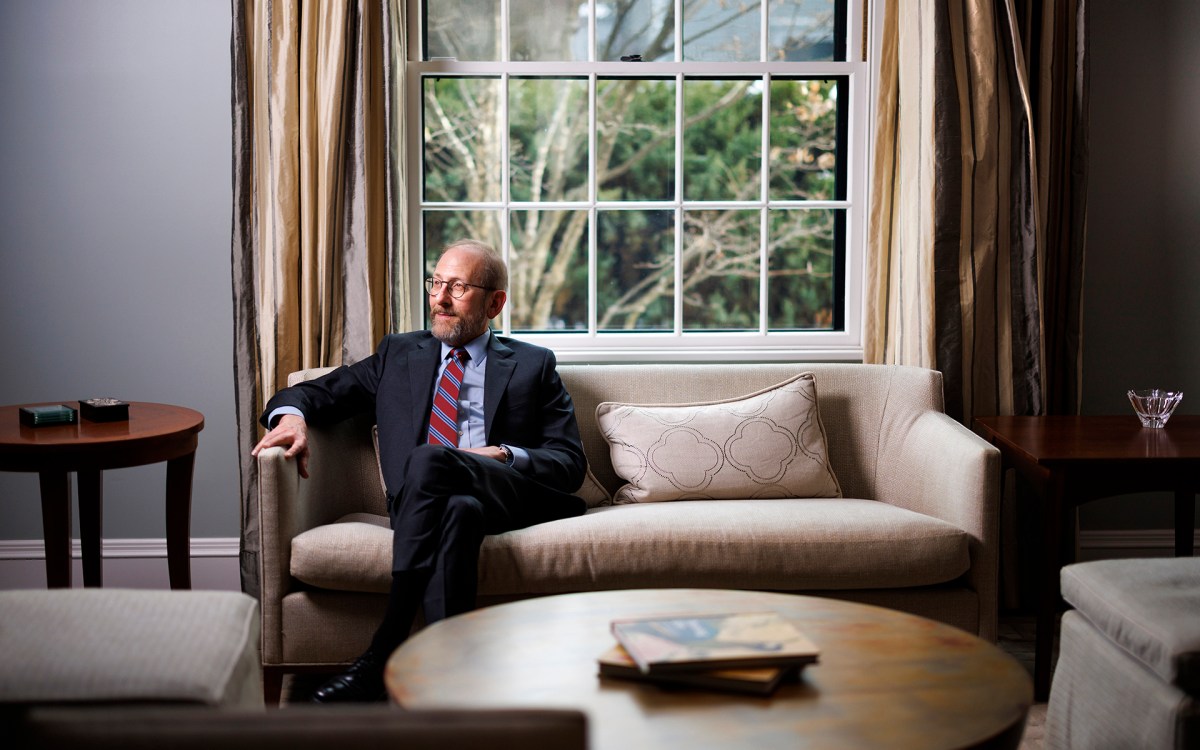President Faust announces committee to enhance spaces on Harvard’s Cambridge campus
Harvard University President Drew Faust today (April 24) announced the formation of a University-wide steering committee to explore ways to enhance Harvard’s Cambridge campus to ensure that the physical environment better supports the intellectual and social vitality of the University. The committee, working with the University Planning Office (UPO), will guide the planning and development of a series of improvements to areas on Harvard’s Cambridge campus that will draw people together for work and pleasure in a spontaneous and informal atmosphere.
Composed of faculty, students, and staff, the steering committee will be chaired by Lizabeth Cohen, Howard Mumford Jones Professor of American Studies and expert on American urban history and the built environment, and Mohsen Mostafavi, dean of the Graduate School of Design and professor of architecture.
“The architecture of our buildings, the spaces inside, among, and around them, and the pathways between them shape who we are as a university. At Harvard, we are careful to preserve the best of the past, but we shouldn’t be afraid to adapt our historic spaces and traditions to changes in who we are and how we engage with each other,” said Faust in announcing the project. “This committee will lead an effort to create new spaces that will draw our increasingly diverse and interdisciplinary community together and enhance the intellectual, social, and cultural life that is at the core of the Harvard experience.”
“I am very pleased to work with President Faust and Dean Mostafavi on this project to enhance our student and community life,” said Cohen. “Cambridge provides a vibrant and historic setting for Harvard. I am looking forward to exploring ways to complement that vitality with new venues for activity and interaction on our Cambridge campus.”
“The Harvard campus has always been an evolving site, responding, at each stage of its history, to the intellectual and social needs of its community,” added Mostafavi. “We have the opportunity to systematically reconsider parts of our campus and create places that not only respond to our current needs but also anticipate our future possibilities.”
Studies and student surveys over many years have pointed to the need for additional spaces for cultural, recreational, and social activities for the Harvard community. The work of this committee will build on recent campus community and student life improvements that have included the creation of both the Lamont Café, an alternative study space that fosters group work in a relaxed setting, and the Cambridge Queen’s Head Pub in Loker Commons, which is intended to augment the College’s House-based social life with a comfortable common venue for meeting and socializing. The enhancements will also provide much-needed gathering spaces for students and faculty from Harvard’s graduate and professional schools, and will provide staff and members of the larger community with places to gather at the heart of the campus.
“This new initiative will complement the residential House system that is such a vital part of the undergraduate experience at Harvard,” said Evelynn Hammonds, newly appointed dean of Harvard College and steering committee member. “Imagine places where classroom conversations and debates are continued informally, places where serendipity leads to discovery. This kind of community interaction holds great promise.”
The steering committee will work collaboratively with the University Planning Office (UPO) on this project. UPO is working on a preliminary review of the Cambridge campus to identify potential areas that can benefit from physical and programmatic improvements. The project sets the stage for the University to enliven its spaces, which can add to the vibrancy of Harvard Square and complement the many attractive public improvements recently completed by the city of Cambridge and the Harvard Square Business Association.
“We are looking at locations around and near Harvard Yard that are natural anchors for campus activities but that we don’t now take full advantage of,” said Tanya Iatridis, director of the University Planning Office and project director. “Together we have an incredible opportunity to explore ways to inject life into these spaces so that they better meet the needs of our community.”
The steering committee will oversee an outreach effort, which will include the creation of focus groups and other mechanisms for seeking input from students and the broader University community, to help define the kinds of activities and programs appropriate for the new spaces. The committee will include two undergraduate and two graduate students who will be selected in consultation with the Undergraduate Council and the Graduate Council.
The steering committee welcomes suggestions, and encourages members of the Harvard community to send ideas to commonspaces@harvard.edu.




